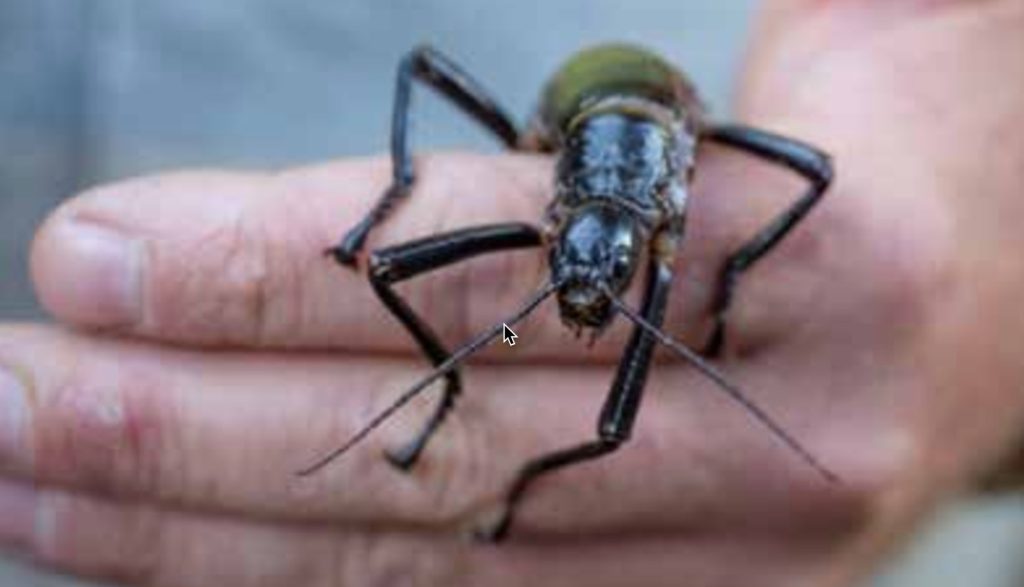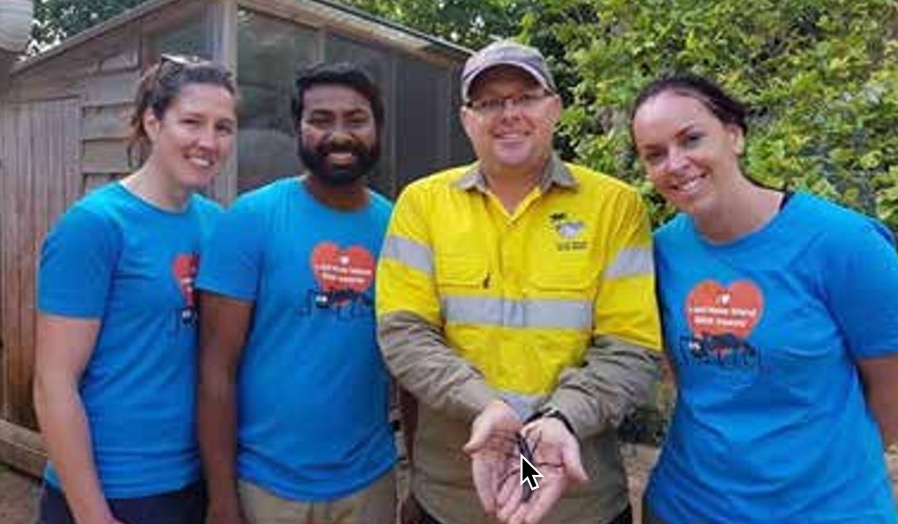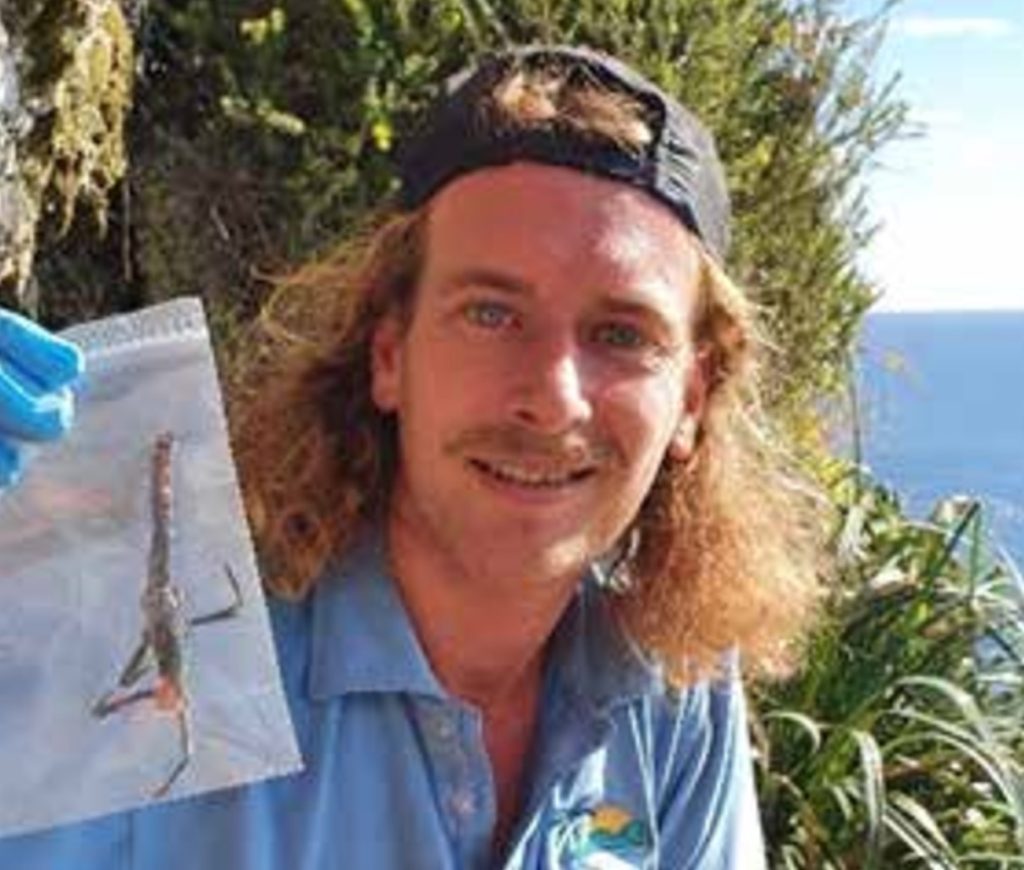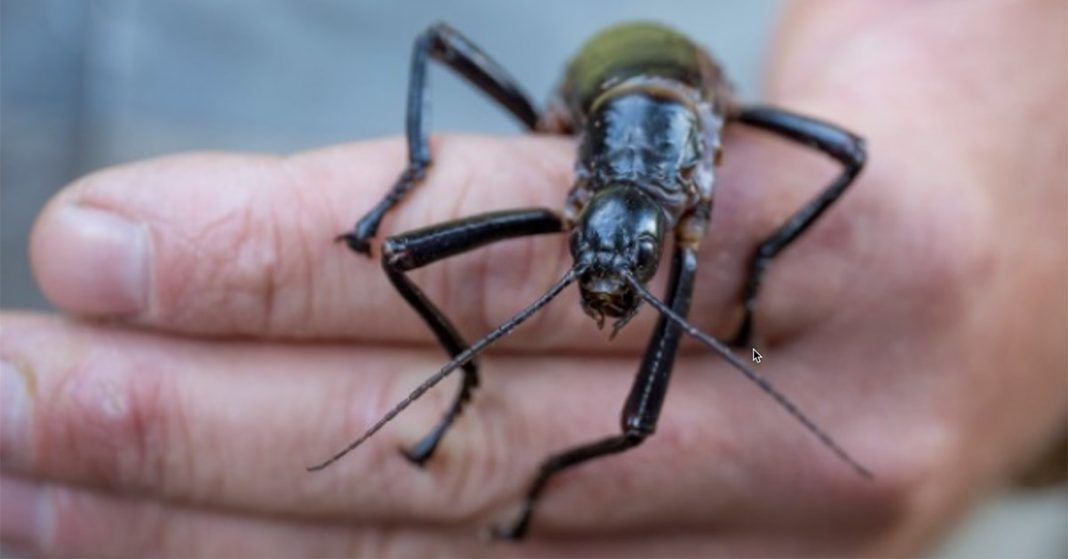The Lord Howe Island Board (LHIB). The Lord Howe Island Phasmid is one of the world’s rarest insects. Once common and widespread on the Island, its numbers declined rapidly following the introduction of black rats in 1918. By the late 1920s, the species disappeared from the Island entirely. The Phasmid was presumed extinct until two live adults were found on Balls Pyramid in 2001 – in a patch of shrubs on a narrow rock ledge.
Into captivity – Melbourne Zoo

In 2003, two adult pairs were collected from Balls Pyramid to commence a captive breeding program at Melbourne Zoo. The captive population was established as a safeguard in case the wild population on Balls Pyramid became extinct. It also provides a source population for potential reintroduction of the species to LHI and an opportunity to undertake valuable biology research.
The Lord Howe Island Board (LHIB) with Melbourne Zoo.

Caring for the LHI captive population
LHIB has managed a captive population of Phasmids on the Island since 2008. This captive population is made up of approximately 300 adults and varying numbers of juveniles. Cared for by the LHIB World Heritage Team, the Phasmids are supplied with fresh water and a variety of fresh leafy vegetation including Banyan, Bloodwood and Melaleuca.
The enclosures are cleaned regularly. The Phasmids’ general health is monitored for signs of Serratia, a common bacteria which can reduce life expectancy and is known to occur in damp environments on LHI.
Returning to a secure population size
Despite being a challenging species to maintain in captivity, the Phasmid captive population is now considered secure. Over 1,200 adults are now distributed across five institutions, including Bristol Zoo (UK) and San Diego Zoo (USA).
LHIB also undertakes management work on Balls Pyramid to reduce threats to the wild population, including control of the invasive weed Coastal Morning Glory.

Two Phasmid exoskeletons were discovered on Balls Pyramid in August, 2023, during regular habitat restoration work, confirming their continued presence in the wild.
Learn more about the protection of the Phasmid here.


